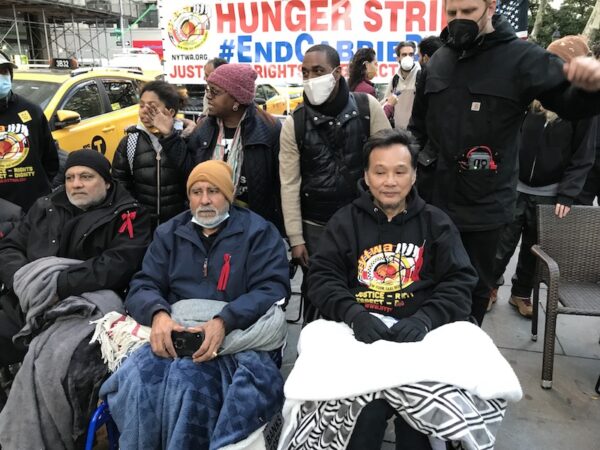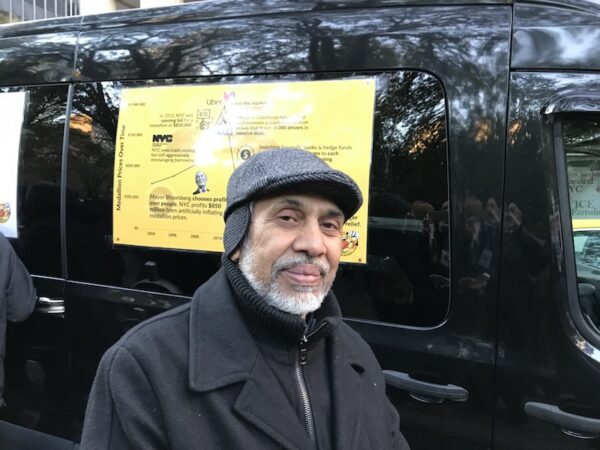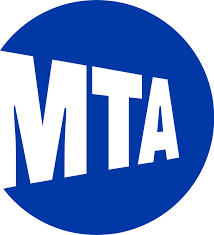
New York, NY – At 4:03 in the afternoon on Nov. 3, the New York Taxi Workers Alliance [NYTWA] posted a brief but exultant message on Twitter.
“BREAKING NEWS: 2 words: WE WON!!!! THANK YOU NYC!!!!” it began.
The union, Mayor de Blasio, the city Taxi and Limousine Commission, and Marblegate Asset Management, the largest holder of debts owed on taxi medallions, had just reached a deal to provide relief for cabbies buried under hundreds of thousands of dollars in debt. The agreement came after a two-week hunger strike by owner-drivers and supporters camped on the sidewalk by City Hall Park.
Under the agreement, the mayor’s office said, Marblegate will reduce the principal balance on outstanding loans to $200,000, while the city will give drivers a grant of $30,000 for a down payment and guarantee the principal and interest on the remaining $170,000 of the loan. Interest will be set at 5% over 20 years, with monthly payments capped at $1,122 per month for eligible medallion owners.
The city “will work with all other medallion lenders to achieve the same terms,” the mayor’s office said in a statement.
Jubilant cabbies chanted “Driver Power, Union Power” on the sidewalk on Broadway and Murray Street, as a large knot of drivers and photographers surrounded the last group of hunger strikers taking their first bites of solid food — among them driver Richard Chow, sitting in a wheelchair, and NYTWA Executive Director Bhairavi Desai, spooning out an avocado, with a date for dessert.
“This is the best meal I’ve ever had, outside of my mom’s cooking,” she told LaborPress.
The $1,122 maximum monthly payment is more than the $800 that NYTWA had called for, saying that was the most drivers could pay and still make minimum wage. But it’s significantly less than the $1,500 the city’s Medallion Relief Program was touting and the $1,600 Marblegate had been offering, and drastically less than the above-$2,700 some drivers had been paying.
“Drivers will no longer be at risk of losing their homes, and no longer be held captive to a debt beyond their lifetime,” Desai said in the statement released by City Hall. She added that the agreement wouldn’t have happened without Senate Majority Leader Charles Schumer, “whose leadership secured funds and helped steer our ship.”

TLC Commissioner and Chair Aloysee Heredia Jarmoszuk said the deal would build on the success of the Medallion Relief Program, which the TLC inaugurated in late August. It has helped 173 of the more than 3,000 debt-burdened owner/drivers reduce what they owe, the mayor’s office said.
“It seems like it’s going to be manageable,” driver Abdul Malik of Brooklyn told LaborPress. “Today we won. People became united in a very miserable time. Nobody knew what they were going to do, other than just die.”
Malik, now 70, has been driving a cab since 1975, just after he immigrated from Pakistan. He shows a picture of himself as a young man, standing by his cab under the Brooklyn Bridge. He said he owed $400,000.
“This is one of the most transformative wins of my 25 years, and I’m so proud to celebrate it with my father, a driver for 30 years,” said Jaslin Kaur of Queens, who spoke at the Oct. 20 rally launching the hunger strike.
“We did it,” drivers chanted, pogo-jumping like the Atlanta Braves on the pitcher’s mound after they won the World Series the night before. Someone rolled a portable sound system onto the patch of sidewalk by the nine-candle memorial to the nine cabbies who’d committed suicide, and the space filled with a couple dozen dancers as it pumped out Kool and the Gang’s “Celebration.” The music segued to cumbia, and a Nepalese driver danced with a Romanian driver’s widow.
Yet the celebration was tinged with bitterness for what the drivers had endured: the years of inflating medallion prices and “balloon” loans, whose payments are deceptively low at first; the bubble popping just as the city was letting thousands of largely unregulated app-based cabs saturate the streets; and drivers’ incomes and medallion values plummeting, leaving many working for minimum wage or less — all before the COVID-19 pandemic.
Rafiqur Rahman said his cab and medallion were repossessed right in front of his house during the pandemic.
“They said we were going to own a piece of the city,” Abdul Malik said. “A lot of people killed themselves. A lot of people died of heart attacks. Why couldn’t they see before what they were doing to the people?”
“It’s hard for me to be here. I lost my husband,” the widow confided softly.
“This is very good for us,” said Chimi Gyatso. “But still, the city has to do something about all the unregulated cabs.”
Driver Victor Salazar said he was particularly moved by the support the drivers’ camp got from New Yorkers, in donations of money and food; backing from elected officials such as Schumer and Assemblymember Zohran Mamdani of Queens; and especially the attention paid by young people.
“To me, this is historic,” he said. “I cannot describe it. I am full of joy.”
“My loss was nothing, nobody could hear me,” said Malik. “Thanks to these people who had the idea for a union, here we are today. It’s a relief.”
The dancing continued as the crowd dissipated. The music switched to uptempo Desi electronic dance music, then to Peter Tosh’s reggae-rebel anthem “Get Up, Stand Up,” loud enough to resonate on the platform of the subway station below.



